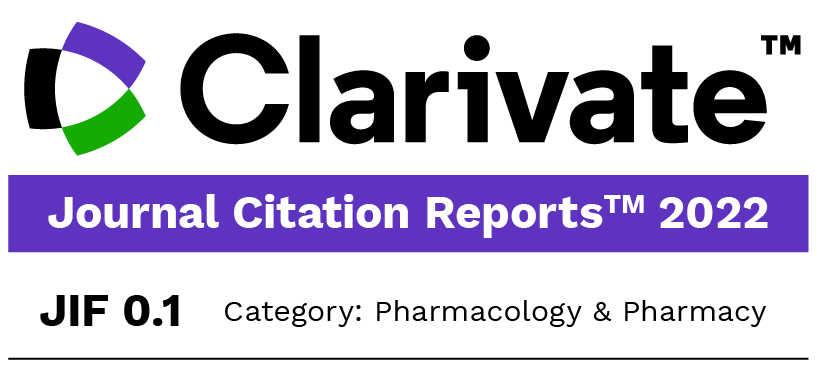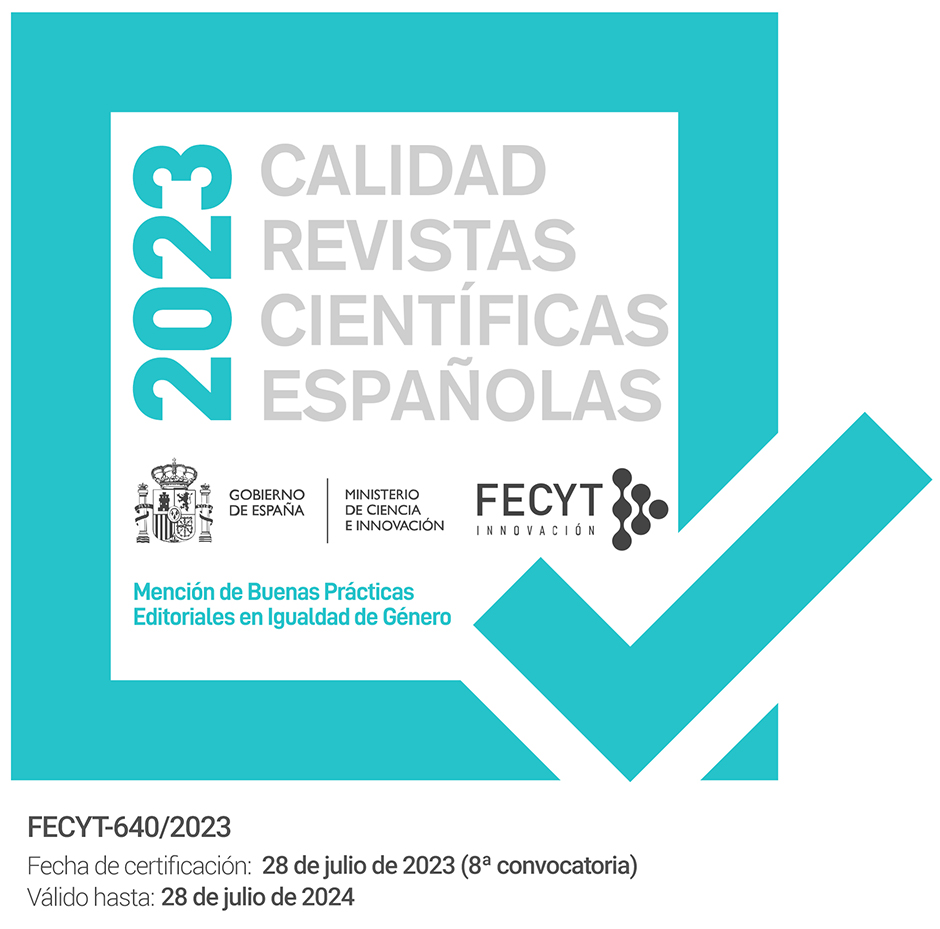Detection and resolution of Drug Therapy Problems in a Pharmaceutical Care service in Argentina
DOI:
https://doi.org/10.60103/phc.v25i3.803Keywords:
medication therapy management; pharmaceutical services; drug therapy problemsAbstract
Introduction: Pharmaceutical Care is a systematic process to detect, solve, and prevent Drug Related Problems. The aim of this study is to describe the number and profile of problems detected and solved in a group of adult patients interviewed in a Pharmacotherapy Optimization Unit in Argentina, during an average pharmacotherapeutic follow-up of one year.
Method: A quasi-experimental, open-label, prospective study was carried out in 40 outpatients. The Clinical characteristics and medications were revealed, as well as their adherence to the service. The Minnesota classification of Drug Therapy Problems was used, recording dimension, category, cause, associated clinical condition, associated medication, risk status, final status, and resolution method.
Results: The most widely used pharmacotherapeutic groups were beta-blockers, statins, vitamins and minerals, analgesics, proton pump inhibitors, and benzodiazepines. Indication problems, especially due to the need for additional pharmacotherapy, prevailed as the most frequent, including the lack of preventive vaccines. It was possible to solve 73.6% of the detected problems, of which 60.3% was done through reports to the treating physicians. The rest could be addressed through patient education, especially those related to adherence.
Conclusions: Pharmaceutical Care allowed a systematic pharmacotherapy work-up of Drug Related Problems detected and solved in a group of elderly outpatients, mainly female, in the context of a Pharmacotherapy Optimization Unit set up in a university hospital in Argentina.
Downloads
References
Charlesworth CJ, Smit E, Lee DSH, Alramadhan F, Odden MC. Polypharmacy among adults aged 65 years and older in the United States: 1988-2010. J Gerontol A Biol Sci Med Sci. 2015;70(8):989-95. doi:10.1093/gerona/glv013.
Rodríguez EM. Use of drugs in Argentina: A worrying issue. J Pharmacol Ther Res. 2018;2(1):6. doi:10.35841/pharmacology.2.1.6.
Howard RL, Avery AJ, Slavenburg S, Royal S, Pipe G, Lucassen P, et al. Which drugs cause preventable admissions to hospital? A systematic review. Br J Clin Pharmacol. 2007;63(2):136–147. doi:10.1111/j.1365-2125.2006.02698.x.
Leendertse AJ, Egberts ACG, Stoker LJ, van den Bemt PML a. Frequency of and Risk Factors for Preventable Medication-Related Hospital Admissions in the Netherlands. Arch Intern Med. 2008;168(17):1890-6. doi:10.1001/archinternmed.2008.3.
Patel KJ, Kedia MS, Bajpai D, Mehta SS, Kshirsagar NA, Gogtay NJ. Evaluation of the prevalence and economic burden of adverse drug reactions presenting to the medical emergency department of a tertiary referral centre: A prospective study. BMC Clin Pharmacol. 2007; 7: 8. doi:10.1186/1472-6904-7-8.
Samoy LJ, Zed PJ, Wilbur K, Balen RM, Abu-Laban RB, Roberts M. Drug-related hospitalizations in a tertiary care internal medicine service of a Canadian hospital: A prospective study. Pharmacotherapy. 2006;26(11):1578-86. doi:10.1592/phco.26.11.1578.
Gandhi TK, Weingart SN, Borus J, Seger AC, Peterson J, Burdick E, et al. Adverse Drug Events in Ambulatory Care. N Engl J Med. 2003;348(16):1556-64. doi:10.1056/NEJMsa020703.
Ascar GI, Hespe CB, Hernández MM. Relación entre polifarmacia y número de médicos consultados por pacientes ancianos. Rev Cubana Farm. 2015;49(3):491-501. Disponible en: http://scielo.sld.cu/scielo.php?script=sci_arttext&pid=S0034-75152015000300009&lng=es&nrm=iso. ISSN 0034-7515.
World Health Organization. Medication Safety in Polypharmacy. Technical Report. Geneva: World Health Organization; 2019. 61 p.
Anderson G. The future of Medicare: recognizing the need for chronic care coordination [Internet]. U.S. Senate Hearing Publications; 2007:19–20. Disponible en: https://www.govinfo.gov/content/pkg/CHRG-110shrg38617/html/CHRG-110shrg38617.htm
Alomar MJ. Factors affecting the development of adverse drug reactions (Review article). Saudi Pharm J. 2014;22:83–94. doi:10.1016/j.jsps.2013.02.003
Bacic-Vrca V, Marusic S, Erdeljic V, Falamic S, Gojo-Tomic N, Rahelic D. The incidence of potential drug-drug interactions in elderly patients with arterial hypertension. Pharm World Sci. 2010;32(6):815–21. doi:10.1007/s11096-010-9442-5.
González-Pedraza Avilés A, Sánchez-Reyes A, González-Domínguez R. Factores de riesgo asociados al uso de medicamentos potencialmente inapropiados en ancianos de una clínica de medicina familiar. Atención Farm. 2014;21(3):69–72. doi:10.1016/S1405-8871(16)30020-7.
Hajjar ER, Cafiero AC, Hanlon JT. Polypharmacy in elderly patients. Am J Geriatr Pharmacother. 2007;5(4):345–51. doi:10.1016/j.amjopharm.2007.12.002.
Marusic S, Bacic-Vrca V, Obreli Neto PR, Franic M, Erdeljic V, Gojo-Tomic N. Actual drug-drug interactions in elderly patients discharged from internal medicine clinic: A prospective observational study. Eur J Clin Pharmacol. 2013;69(9):1717–24. doi:10.1007/s00228-013-1531-7.
Rodrigues MCS, De Oliveira C. Interações medicamentosas e reações adversas a medicamentos em polifarmácia em idosos: Uma revisão integrativa. Rev. Latino-Am Enfermagem. 2016;24:e2800. doi:10.1590/1518-8345.1316.2800.
Zhang M, Holman CDAJ, Price SD, Sanfilippo FM, Preen DB, Bulsara MK. Comorbidity and repeat admission to hospital for adverse drug reactions in older adults: Retrospective cohort study. BMJ. 2009;338(7687):155–8. doi:10.1136/bmj.a2752.
Ponte ML, Wachs L, Wachs A, Serra HA. Prescribing Cascade. A Proposed New Way To Evaluate It. Medicina (B Aires). 2017;77(1):13-16. PMID:28140305.
Cipolle R, Strand L, Morley P. Pharmaceutical Care Practice. 3rd ed. New York: McGraw-Hill; 2012. 697 p.
Brodie DC. Harvey A.K. Whitney lecture. Need for a theoretical base for pharmacy practice. Am J Hosp Pharm. 1981;38(1):49–54. PMID:7211871.
Hepler CD, Strand LM. Opportunities and responsibilities in pharmaceutical care. Am J Hosp Pharm. 1990;47(3):533–43. PMID:2316538.
Machuca M. Seguimiento farmacoterapéutico. 1a ed. Madrid: Mayo Ediciones; 2008. 107 p.
Machuca M. Seguimiento farmacoterapéutico II. La práctica de la atención al paciente. 1a ed. Madrid: Mayo Ediciones; 2009. 110 p.
Abrahamsen B, Burghle AH, Rossing C. Pharmaceutical care services available in Danish community pharmacies. Int J Clin Pharm. 2020;42(2):315-320. doi: 10.1007/s11096-020-00985-7.
Shawahna R, Thawabi F, Salah R, Ramadan S. Pharmaceutical care services for patients with diabetes: a systematic scoping review. Am J Manag Care. 2022;28(9):e339-e346. doi: 10.37765/ajmc.2022.89227.
Al Raiisi F, Stewart D, Fernandez-Llimos F, Salgado TM, Mohamed MF, Cunningham S. Clinical pharmacy practice in the care of Chronic Kidney Disease patients: a systematic review. Int J Clin Pharm. 2019;41(3):630-666. doi: 10.1007/s11096-019-00816-4.
Herledan C, Cerfon MA, Baudouin A, Larbre V, Lattard C, Poletto N, Ranchon F, Rioufol C. Impact of pharmaceutical care interventions on multidisciplinary care of older patients with cancer: A systematic review. J Geriatr Oncol. 2023;14(4):101450. doi: 10.1016/j.jgo.2023.101450.
Ruiz-Ramos J, Hernández MH, Juanes-Borrego AM, Milà R, Mangues-Bafalluy MA, Mestres C. The Impact of Pharmaceutical Care in Multidisciplinary Teams on Health Outcomes: Systematic Review and Meta-Analysis. J Am Med Dir Assoc. 2021;22(12):2518-2526. doi: 10.1016/j.jamda.2021.05.038.
Ullibarri N, Gastelurrutia MA, Erazo F, López de Ocáriz M, Martiarena A, Díez B, Sáenz de Santamaria M, Villacorta M, del-Arco J, Goyenechea L, Betolaza JI. Programa de seguimiento farmacoterapéutico integral a pacientes crónicos y polimedicados. Programa Piloto en pacientes con Diabetes tipo 2. Resultados. Pharmaceutical Care España 2022;24(6):35–65. Disponible en: https://pharmcareesp.com/index.php/PharmaCARE/article/view/791
Fridman G. Relación médico-farmacéutico en la implementación de un programa de Atención Farmacéutica en la oficina de farmacia. [Tesis Doctoral]. [Ciudad Autónoma de Buenos Aires]: Facultad de Farmacia y Bioquímica, Universidad de Buenos Aires; 2011.
Secretaría de Extensión. Atención Farmacéutica en APS [Internet]. Facultad de Ciencias Bioquímicas y Farmacéuticas, Universidad Nacional de Rosario; 2019. Disponible en: https://www.fbioyf.unr.edu.ar/?page_id=854
Paura A, Branvatti S, Gurisatti C, Negrino S, Pott E. La Atención Farmacéutica en la Provincia de Buenos Aires (Argentina): su papel y contexto de aplicación. Acta Farm Bonaer. 2005;24(4):598–600. Disponible en: http://www.latamjpharm.org/resumenes/24/4/LAJOP_24_4_6_3.pdf
Fick DM, Semla TP, Steinman M, Beizer J, Brandt N, Dombrowski R, et al. American Geriatrics Society 2019 Updated AGS Beers Criteria® for Potentially Inappropriate Medication Use in Older Adults. J Am Geriatr Soc. 2019;67(4):674–94. doi:10.1111/jgs.15767.
Kanno T, Moayyedi P. Proton Pump Inhibitors in the Elderly, Balancing Risk and Benefit: an Age-Old Problem. Curr Gastroenterol Rep. 2019;21(12):65. doi:10.1007/s11894-019-0732-3.
Centers for Disease Control and Prevention. Chronic Diseases in America [Internet]; 2020. Disponible en: https://www.cdc.gov/chronicdisease/resources/infographic/chronic-diseases.htm
Wolff JL, Starfield B, Anderson G. Prevalence, expenditures, and complications of multiple chronic conditions in the elderly. Arch Intern Med. 2002;162(20):2269-76. doi:10.1001/archinte.162.20.2269.
Downloads
Published
How to Cite
Issue
Section
License
Copyright (c) 2023 Hugo Granchetti, Mónica Pappalaro, Matías Emanuel Romero, María Paula Domínguez, Victoria Gomboso, Marina Larrea, Geraldine Raspanti, Matías Otero, Carla Reynaga, Antonella Pezzaniti, Javier Coyle, Eduardo Lagomarsino

This work is licensed under a Creative Commons Attribution-NonCommercial-ShareAlike 4.0 International License.
La revista Pharmaceutical Care España se publica bajo una licencia «Creative Commons, Reconocimiento, No Comercial y Compartir Igual 4.0 Internacional» (CC BY-NC-SA 4.0)», que permite a otros compartir el trabajo con un reconocimiento de la autoría del trabajo y la publicación inicial en esta revista (con excepción de los usos comerciales).
Los autores que publican en esta revista están de acuerdo con los siguientes términos:a) Los autores conservan los derechos de autor (derechos morales) y garantizan a la revista el derecho de ser el primer soporte documental publicado del trabajo.
b) Se permite y anima a los autores a difundir la versión del trabajo revisado por pares y aceptada para su publicación (por ejemplo, en repositorios institucionales o temáticos), recomendando hacerlo con la versión final del editor “pdf”, “html” o “xml”).









